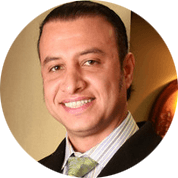Even Children Need to Floss
Our pediatric dentistry practice is designed to maintain the oral health of our young patients in order to avoid the need for restorative care. By teaching young children to brush properly, the parents and dentist work together to decrease the risk of decay. Flossing, however, is a habit that many parents themselves struggle with. As such, teaching children this important daily habit may pose significant challenge. Some patients wonder just how necessary flossing is, especially with the new and improved toothpaste products on the market today. Our motto is that patients should floss the teeth they want to keep for a long time. In that single statement, you get a pretty good idea that flossing really does go hand in hand with brushing.
When we brush our teeth, we remove harmful bacteria that naturally reside in the oral cavity. Millions of bacteria travel around from teeth to gums to tongue throughout the day, feeding on food particles that are left in-between teeth after a meal (even after brushing). While brushing washes away some of these bacteria, many are able to escape the brush and hide in tiny places like the gum line and in between teeth. By flossing after adequately brushing teeth, you are able to eliminate more bacteria than you can with brushing alone; thus protecting oral health.
Removing as much bacteria as possible is important because bacteria which are left behind do not die off; they continue to feed on any particles in the mouth. Waste is a natural byproduct of eating, and from bacteria what you get is the production of acid and sulfur compounds. While the sulfur compounds may cause bad breath, even in children, the acid produced by bacteria will eat away enamel and cause tooth decay; and will also eat healthy gum tissue.
Even children can experience the buildup of tartar and plaque, which attract aggressive bacteria that in turn irritate gum tissue and leave it inflamed. This inflammation is called gingivitis, which can progress to periodontal disease over time. What this means to the young patient is a breakdown in healthy gum tissue and an eventual breakdown in the bones that support healthy teeth. Patients with advanced gum disease are at risk of losing permanent teeth.
To set your child up for prolonged oral health, develop the habit of daily flossing and visit our office for regular checkups.
Dr. Jamil Alkhoury
Dr Jamil Alkhoury believes dentists to be artists. Taking care of another person’s teeth is definitely an art in which Dr Jamil Alkhoury is an expert. Having graduated from University of California, San Francisco (UCSF) with a degree in Advanced Education in General Dentistry, he has always focused on the well-being of his patients. Brentwood family dental headed by Dr Jamil Alkhoury offers a wide range of services. He always keeps in touch with the developments in the field, to serve his purpose to the best of his abilities.
![Happy patients of best detal experience video testimonial in Brentwood CA]()
Patient full consent to show the case of her son is enforced and results may vary!
Brentwood family dental In the news
Award Winning Dentistry With An Artistic Touch!
A Success Story
![review author Audrey T.]() Audrey T.
Audrey T.
![Brentwood Family Dental, Dr. Jamil Alkhoury, 5 star review by Audrey T.]()
Originally, Powered By

"
Dr Alkhoury is wonderful! He took great care of my 5 year old daughter. He and his assistant made my daughter feel very comfortable. She is wanting to come back to the dentist for her next check up already. Highly recommend! They are the best at Brentwood Family Dental. Thank you Dr Alkhoury!!!
"

 Audrey T.
Audrey T.
 "
Dr Alkhoury is wonderful! He took great care of my 5 year old daughter. He and his assistant made my daughter feel very comfortable. She is wanting to come back to the dentist for her next check up already. Highly recommend! They are the best at Brentwood Family Dental. Thank you Dr Alkhoury!!!
"
"
Dr Alkhoury is wonderful! He took great care of my 5 year old daughter. He and his assistant made my daughter feel very comfortable. She is wanting to come back to the dentist for her next check up already. Highly recommend! They are the best at Brentwood Family Dental. Thank you Dr Alkhoury!!!
"